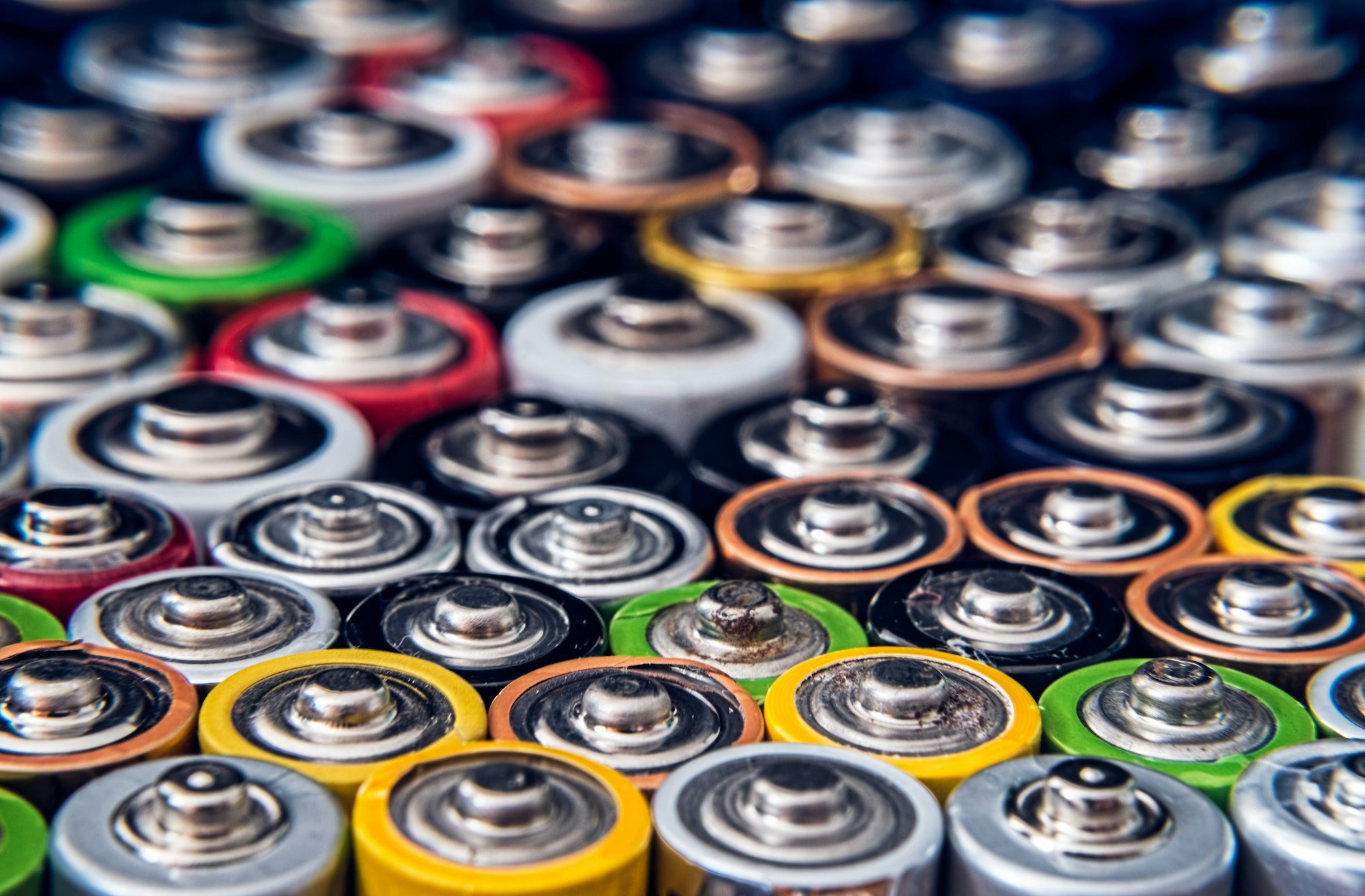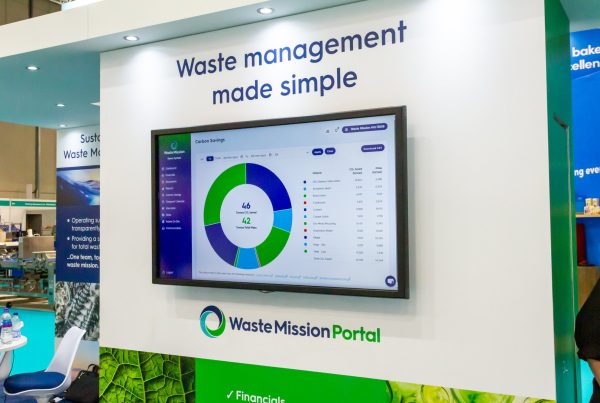For many UK manufacturers, lithium-ion batteries have become integral to operations – powering everything from cordless tools and forklifts to electric vehicles and production equipment. Yet as these units reach the end of their life, many sustainability and procurement managers find themselves with a challenge on their hands—how to manage lithium-ion battery recycling responsibly while reducing risk, costs, and environmental impact.
Responsible recycling of lithium-ion batteries is quickly becoming a business necessity. According to figures from the Faraday Institution, around 3.7 million metric tonnes of battery material are expected to be available globally for recycling in 2035, supplying 10% of the lithium and 18% of the cobalt and nickel metals required for battery manufacturing.
Done well, recycling and disposal can reduce your organisation’s carbon footprint, cut fire risks and help feed useful materials back into the UK supply chain.
Why lithium-ion battery recycling matters
Lithium-ion batteries are now the backbone of the transition to cleaner energy and electric transport. However, their rapid uptake means more end-of-life batteries are entering waste streams every year. When not managed properly, they can leak hazardous substances or spark fires, and this has significant implications for health, safety, and business continuity.
Batteries International reported in May 2025 that UK firefighters were tackling at least three lithium-ion battery fires a day, following a surge of 93% from 2022 to 2024. Adrian Simmonds, practice leader for property risk solutions at QBE says “Lithium-ion battery fires continue increasing at a worrying pace. These fires burn differently; they take longer to tackle, typically need 10 times more water to put out and are often more harmful to the surrounding environment.”
The risks can occur on-site, in transit and – particularly in the waste management industry – if unexpected lithium-ion batteries are in unsuitable containers. While the issue is serious, good management and specialist recycling can help reduce this risk.
The circular value of lithium battery materials
Each lithium-ion battery contains valuable resources – lithium, cobalt, nickel, copper, manganese, and aluminium – which can all be recovered and reused. By sending these batteries to responsible recyclers, manufacturers keep finite materials in circulation, reduce the need for resource-intensive global mining, and increase the circularity of high-value metals.
A Stanford University study has found that recycling emits less than half the greenhouse gases of traditional metal mining and uses only a quarter of the water and energy required to extract lithium, cobalt and nickel from ore.
Far from being waste, these materials become part of a circular economy loop that reduces transport emissions and supports the UK manufacturing sector’s resilience. This sort of localised recycling reduces the international haulage associated with raw materials and supports sustainability and procurement teams with environmental credentials and corporate ESG reporting.
Understanding battery waste streams
But how do you know what batteries you’re using and how to dispose of them?
Most manufacturing sites now hold a variety of battery types on premises – from single-use alkaline packs in handheld devices, to rechargeable lithium-ion modules driving production tools and logistics fleets.
Battery waste may come from equipment maintenance cycles where packs are replaced up-front, defective stock or manufacturing scrap, electric vehicle or machine batteries nearing end-of-life and office and domestic batteries used in smaller electronic items.
Even small sites and offices produce waste from laptops, tools and emergency lighting. While these are usually portable lithium-ion cells, they are still hazardous and must be recycled separately.
Each of these is classified as hazardous waste under UK law and should be collected and processed correctly. For smaller batteries used in offices, collection points and recycling bins can handle volumes efficiently. However, industrial and EV batteries require expert handling, compliant storage, and licensed transport to specialist recycling centres.
Safer battery storage systems to minimise risk
Battery fires are a concern across UK manufacturing, but most arise from poor storage or incorrect disposal practices rather than inevitable hazards. Safe systems can mitigate these risks.
Store used batteries in designated, ventilated non-metal containers, isolate damaged or swollen batteries in sealed plastic boxes or sand-filled drums and never compact, pierce, or crush waste batteries.
It’s also important to train team members in proper segregation and emergency response.
How Waste Mission can help
Waste Mission began as a specialist metal recycling company 40 years ago. Since that time, we have expanded our operations to offer a comprehensive range of waste management solutions. We work with our customers as a waste partner, encouraging sustainable and innovative thinking and encouraging a culture change around manufacturers’ waste management habits.
At Waste Mission, our lithium-ion battery recycling service means you can have confidence that every stage – from on-site collection to final material recovery – meets strict regulatory and environmental standards. We operate as part of a total waste management solution, ensuring that batteries never enter general waste streams and that all hazardous components are neutralised or repurposed safely.
Our collection services cover everything from portable batteries to EV power modules. Each consignment is tracked and processed in compliance with UK hazardous waste regulations, keeping clients fully within the law and minimising administrative burden.
Once collected, usable metals such as lithium, cobalt and nickel are carefully extracted for reintroduction into new supply chains. This recovery process significantly reduces the demand for virgin resources, lowers emissions and enhances circularity across the manufacturing sector.
Small collections can often be coordinated through existing recycling partners or local councils. Waste Mission can also provide secure on-site battery bins and routine collection, helping UK businesses maintain compliance without disrupting daily operations.
Batteries must not be put in general waste or mixed recycling bins, as this remains one of the leading causes of waste facility fires. Instead, ensure your business maintains a dedicated, supported approach to end-of-life batteries.
Building a safer manufacturing future
Manufacturers are under pressure to decarbonise while maintaining safe, compliant operations. Lithium-ion battery recycling plays a critical part in achieving these aims – avoiding pollution, reclaiming resources, and addressing a known fire hazard through expert handling.
By working with experienced specialists like Waste Mission, it’s possible to fill some gaps in addressing a very real and complex waste challenge. With the right infrastructure in place, lithium batteries can move from an environmental risk to a viable renewable resource, reinforcing manufacturing resilience as well as protecting people, planet and economy.
Whether you’re managing a national production facility or coordinating a small site’s sustainability strategy, Waste Mission can help you dispose of batteries safely and responsibly. To find out how your business can benefit from compliant battery recycling, book a waste review today.





